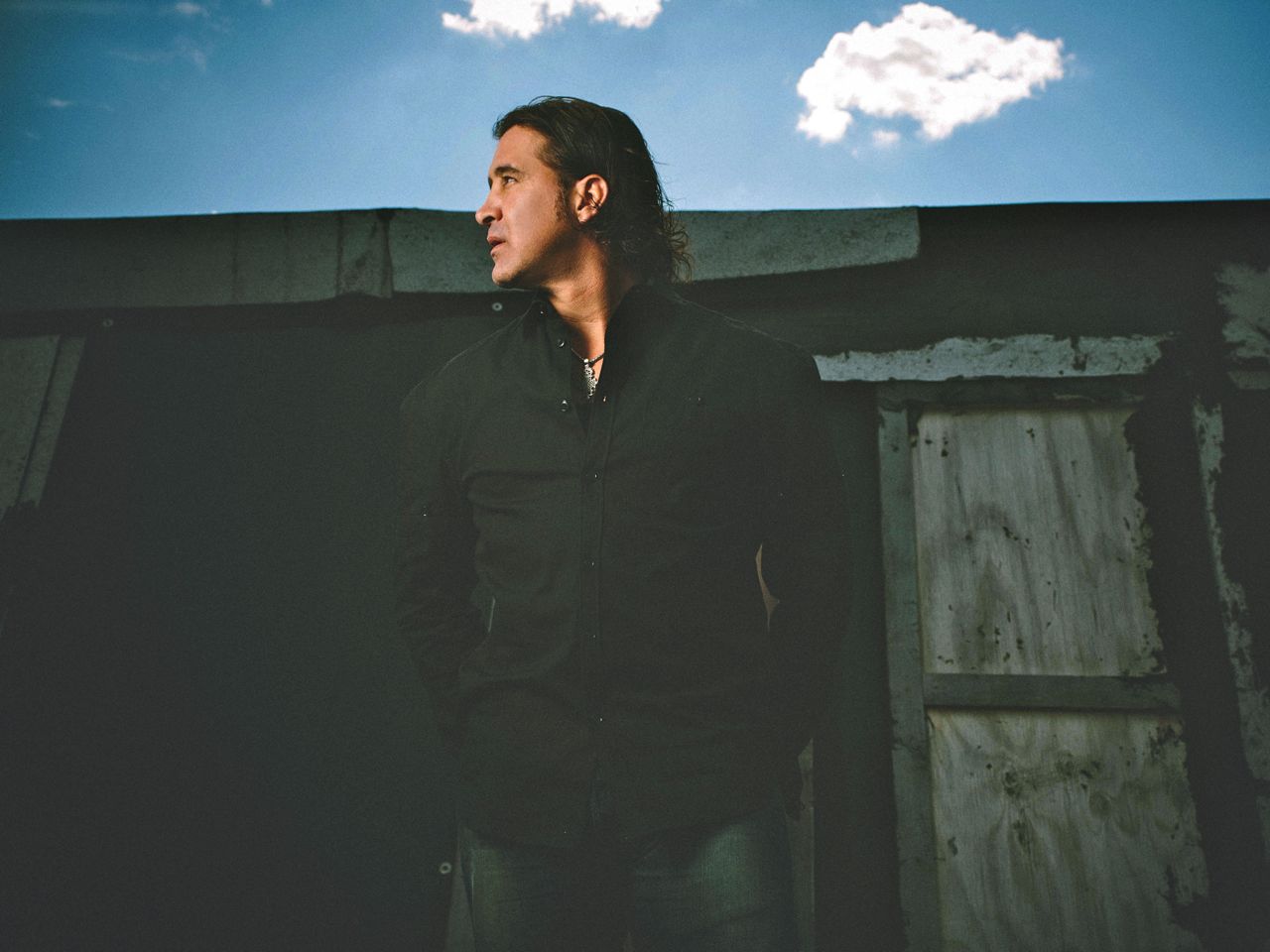
Scott Stapp talks solo tour, Creed and overcoming his demons
They may have been one of the most successful US bands of the nineties, with sales of over 40 million albums worldwide, but Creed hardly played in Europe during their heyday, and not even one show following their 2009 reunion.
Frontman Scott Stapp is aiming to put that right as he picks up his solo career again. But we ended up covering much more than his new record Proof Of Life and the band he put together to tour it when we talked to the singer ahead of his live London return.
The album, new live band and tour mark a new beginning for Stapp after his past problems with addiction, as well as a polarising reputation in the press. Here he speaks with stark honesty about his experiences, reflecting on his highs and lows with Creed and his enthusiasm for a new era in his career.
It’s been a long time since you last played in the UK…
“It has. The last time I was here was in 2008, but I was doing military bases so it wasn’t open to the general public. Since Creed didn’t come over on the Full Circle run I didn’t want to come over unless I had a new record so this was the plan; to get this record [done] and then come over. To basically start over, reintroduce myself and my music.
"Fortunately, I have the Creed history so it’s opening doors that I think a new artist would have a harder time with. It’s a real benefit to me and I really appreciate it. I really love the UK and their attitude; their depth with new artists and their music. What [the UK music press] focusses on is so refreshing, to be honest with you.”
So is there the possibility for more UK dates to follow, later this year?
“Yes, absolutely. Right now we’re talking about October, November and December. It’s not confirmed yet, we want to; the booking agent wants to, I want to. So it’s a matter of getting it hammered out with the promoters and the routing… all that stuff. As soon as we get things confirmed I’ll make that announcement. But I want to do six to eight shows strictly in the UK and go to cities and then do that all over Europe. Spend a good amount of time here.”
What’s the setlist looking like for these solo shows?
“I play nine or ten songs off the new record every night. A couple of songs off [first solo album] The Great Divide, and then every other song is a Creed hit. Again, I’m blessed to have that history and I know that my fans want to hear it, and I want to make them happy. But I also want them to embrace my new music so it’s worked out really well doing every other song. I think when they’re happy, they’re open to where I’m at today.
“And I’m proud of the work Mark Tremonti and I did. Those songs are my personal journals and my personal experiences. They’re my story and it wouldn’t make sense, it wouldn’t feel natural to me not to play them. It’s probably a little different than Mark because I was the lyricist so they’re very personal to me. And I know they’re personal to him, but you know what I mean? They’re like my stories. Torn [the opening song from Creed's 1997 debut album My Own Prison] is a song that Mark wrote the lyrics and the music to, so he would probably feel that way about that song because that’s his core. But I think that’s what makes it more natural for me to do it and why he doesn’t feel comfortable doing it.”
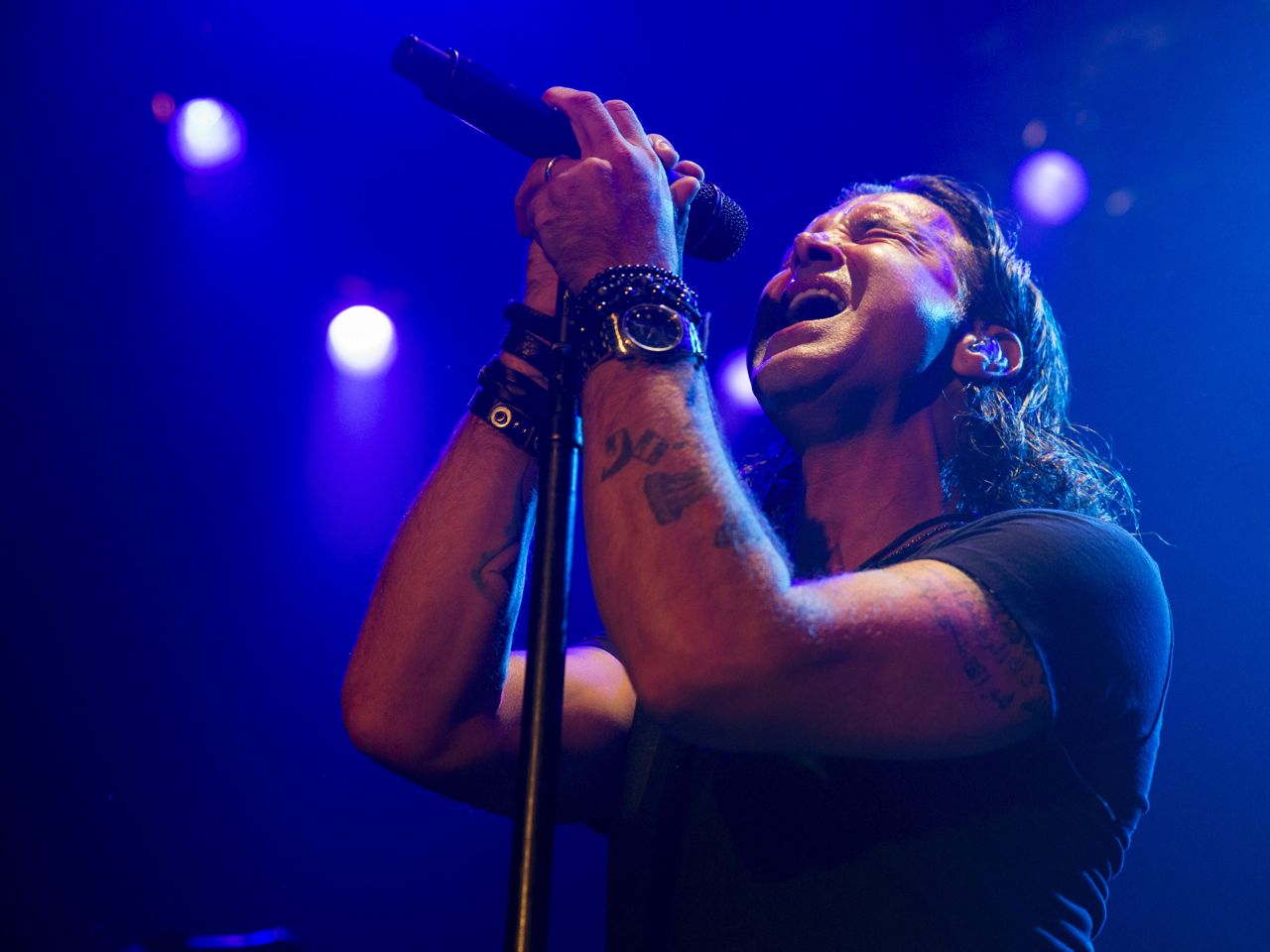
The live solo band
You’ve got a new group of musicians together to tour Proof Of Life, can you tell us some more about them?
“I have Andy Wood on guitar, he’s an equally amazing person as he is a musician; such a fun loving, laid back country boy. Just a great guy to have around. He’s an extremely talented player; there’s nothing he can’t do. There’s no limits. Things that he can do like the mandolin playing, banjo and all these other elements I’m excited about going forward. We're going to be able to experiment with him in the new songs.
“Then I have Chad Szeliga, formerly of Breaking Benjamin. He’s just a monster player and he was also Black Label Society’s drummer, but he recently retired from that band to come with me. He’s another one of those guys where there’s nothing he can’t do, so it’s almost a matter of toning him down. He doesn’t even look like he breaks a sweat for my shows because of how he played with Black Label and Zakk Wylde.
“Travis Comer was the lead singer and lead guitar player in his band [The Last Hour]. In this project he does a couple of leads but he’s mostly rhythm guitar and background vocals. He’s another talented musician and adds another level of being able to organically reproduce what I do on the records with vocal harmonies and background vocals. Because we don’t use any backing tracks or Pro Tools; we’re just straight up.
"He’s a guy that was a Creed fan and was in a band that covered my material. He actually got into music because of Creed and it was a big inspiration on him. My guitar player Artie Rincon from my first solo record, The Great Divide, had a family and at this point didn’t want to go on tour and leave his family. He said, ‘I know the perfect guy for you.’ So basically it’s a Creed fan who is joining my band, it’s kind of cool because he’s like a younger kid and he still acts nervous around me sometimes! The first week he was like, ‘Oh my God, I can’t believe I’m actually here.’ He’s very talented.
“On bass we have Andy Waldeck. He was the singer and bass player in a band in the late nineties called Earth To Andy. Then he’s did songwriting and [worked with] Alice In Chains and Stone Temple Pilots. I think most recently he was doing a kind of hired gun gig for Daughtry. I met Andy in 2010 in New York and we sat down and started writing songs together. I really liked what we were doing so he came out with me and did some full acoustic band tours so it seemed natural, with him being my friend and a very talented bass player, to come along for this project.
“I’m really excited about the band and the chemistry is really good, there’s tons of mutual respect and I think the sky’s the limit. It’s just a matter of, right now, us continuing to organically come together.”
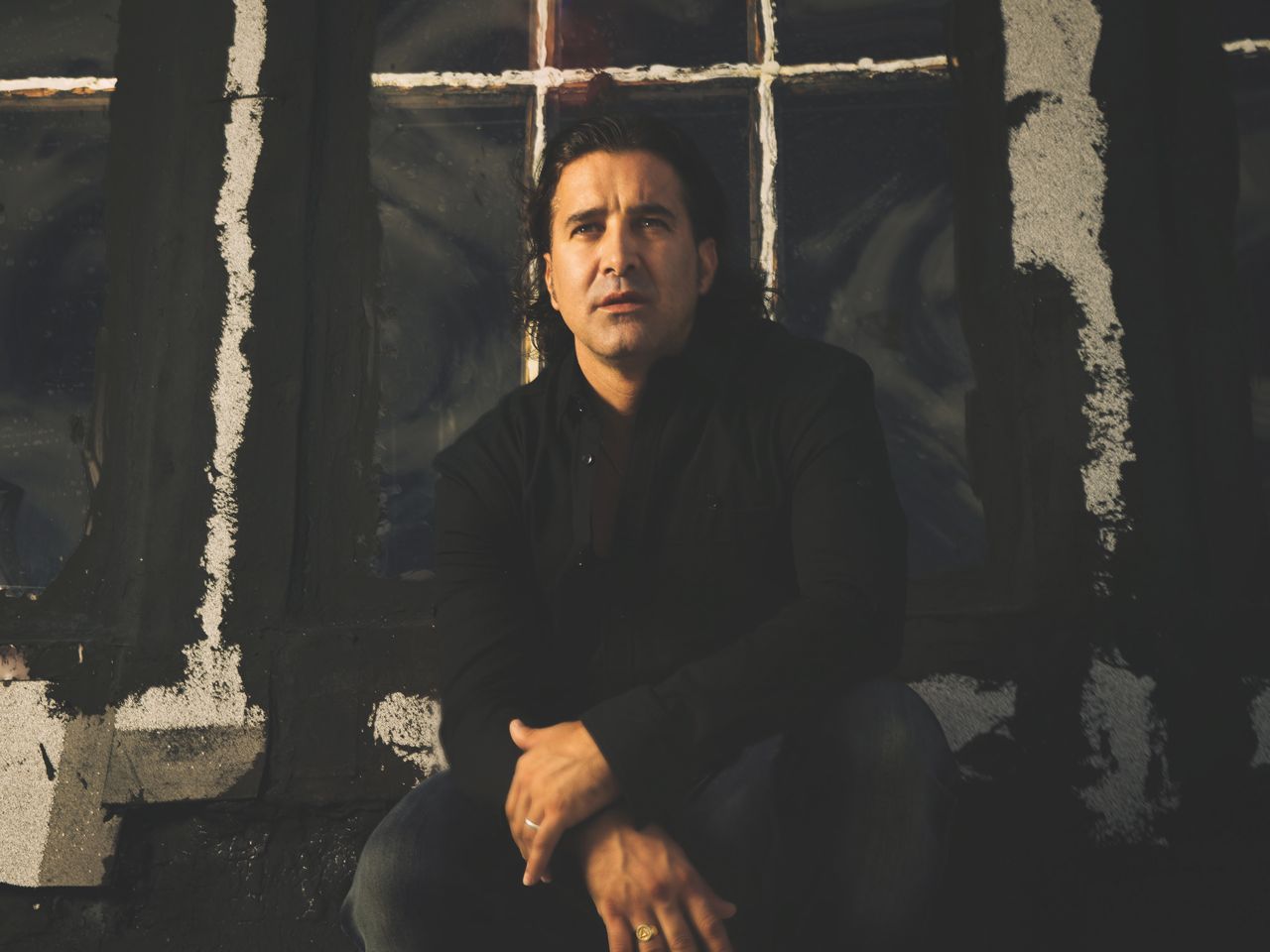
Overcoming his demons
Your 2012 autobiography, Sinner’s Creed, is a very frank account of your experiences so far, do you see Proof Of Life as interconnected with the book and even a continuation of it in some ways?
“Absolutely, I don’t think I could have written Proof Of Life had I not begun this journey of self discovery and sorting through my life; processing my life. I didn’t start out to write a memoir. I started out as a guy who was seeking clarity and sobriety and was kind of directed by someone, who had been there before, to just go and write. Start with your name and when you were born and just write your story down.
"I was just going to share it with that one person and then burn it, that was the whole concept of doing that. After writing my basic story and trying to understand who I am, things in my life and really honestly reflecting; taking responsibility for things where I’d gone wrong. Also, looking back objectively without candy-coating, just being honest.
"When I shared some of it with my wife, she was the one who said, ‘I think you should share this story.’ Part of being in recovery and being someone who is fighting the disease of alcoholism, helping others who are trying to get sober is part of staying sober. Then I kind of found a purpose for this.”
There's a shocking incident in 2006 that you recount in the book when you fell 40 feet down onto a balcony roof at Miami's Delano hotel. You could have died from your injuries, but you were found by the rapper T.I that night and he called for help…
“He did. It’s one of those things where you first hear it and you’re like, ‘Yeah… right.’ But that’s how it happened. He was actually on the Arsenio Hall Show [recently] and he was talking about it. The one thing is, I didn’t jump; I fell. But I had basically been slowly committing suicide for two or three years up to that point with how I was treating my body with alcohol and drugs. But he saved my life.”
Was it a wake-up that set you on the path to recovery?
“That was the beginning. I went through phases after that when I didn’t want to admit I was an addict or an alcoholic, I wanted to find excuses and all of these reasons why I didn’t have to be different, and I could still drink with everybody else. Acceptance is key, so it took me probably until 2010 before I finally looked into the mirror and said, ‘You’re an alcoholic and a drug addict.’
"And it doesn’t matter that it started out [with me] trying to self medicate because of major depression hitting [me]. That’s irrelevant. I tried to use that as an excuse because it’s the truth. It started me doing that but it just turned into something else. And it was enough of making excuses because it seemed like the whole world knew before I did and that’s denial. But in 2010, after white knuckling it and saying, ‘I can stop when I want to,' I was trying to do the right thing but I wasn’t in recovery. It didn’t start until then.”
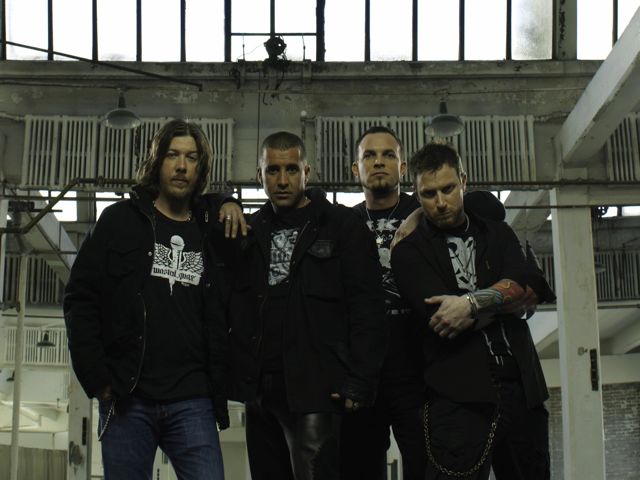
Reputation and singing
Now, and in interviews over the last few years since then, it’s striking how honest you are and you don’t shy away from awkward questions. Were you hesitant at first to be that open with the press, especially after being burned by critics in the past?
“There was a long time in my life when I really was bitter with the press and I didn’t understand what was going on. In the part of my rock n’ roll dream that was coming true, the press was supposed to embrace [Creed] and not do what the majority of them did. So I think me and Mark were hurt, it definitely affected us.
“Then, to take it even further, I felt that it just got to a point where I was intentionally getting set up and taken advantage of. Then I created situations that perpetuated that; I made it even worse for myself when I was fighting depression and alcoholism. I made the mockery even worse and even validated certain things that weren’t valid at the time, but gave the appearance that it was valid later on because of what was going on in my life.
"Basically, part of the walk in sobriety is honesty, and being comfortable in your own skin. I just realised that I can’t live my life trying to paint different pictures and being clever with this; being on guard 24/7. I threw in the towel on that, man. I’m just going to be real. Not that I wasn’t real before, but I got to a point where I was just so guarded and bitter. I just had to let that go and just say it is what it is. And I think humility, and feeling broken – like I had lost everything – helped me get to that point.
“And you never have to really worry about how you’ve answered questions or what you’re saying if you’re telling the truth.”
Is there a misconception that your addiction problems were the reason Creed split up in 2004?
“I think that being the sole reason is definitely a misconception. Because that really kicked in heavy after the breakup. My depression and me not understanding it; me isolating myself and the guys not understanding it either, I know that was one of the top three reasons that we broke up. Most definitely. But I also definitely think my depression and having a couple of drunken experiences, it helped initiate – be the catalyst – and a good excuse to use for what was already beginning to happen for other reasons. It made it safe.”
There was a period when you didn’t tour for a while and, from a vocal perspective, there’s obviously a condition a singer needs to get their voice in to handle the strains of the road. How did you go about that? It seemed like your voice really got back to form on the 2012 Creed tour when you revisited the My Own Prison and Human Clay albums…
“I noticed [that] too. It was really getting the experience back, and then going and actually working with a couple of vocal teachers to finally learn the proper way to sing. I’d been shooting from the hip my entire career. Also, when you’re having a few drinks before the show that’s not helping.
"But really, technique was important and I saw [renowned vocal coaches] Renee Grant-Williams in Nashville and Seth Riggs in LA. They really taught me the proper techniques to sing and it really changed my whole life in terms of the enjoyment I have from performing now. And now I have the lack of worry that I used to carry about blowing my voice out. Just practicing too; warming up, warming down after the show and all that. It’s definitely had an impact on my voice and it’s expanded my range, and really opened up a lot of things for me.”
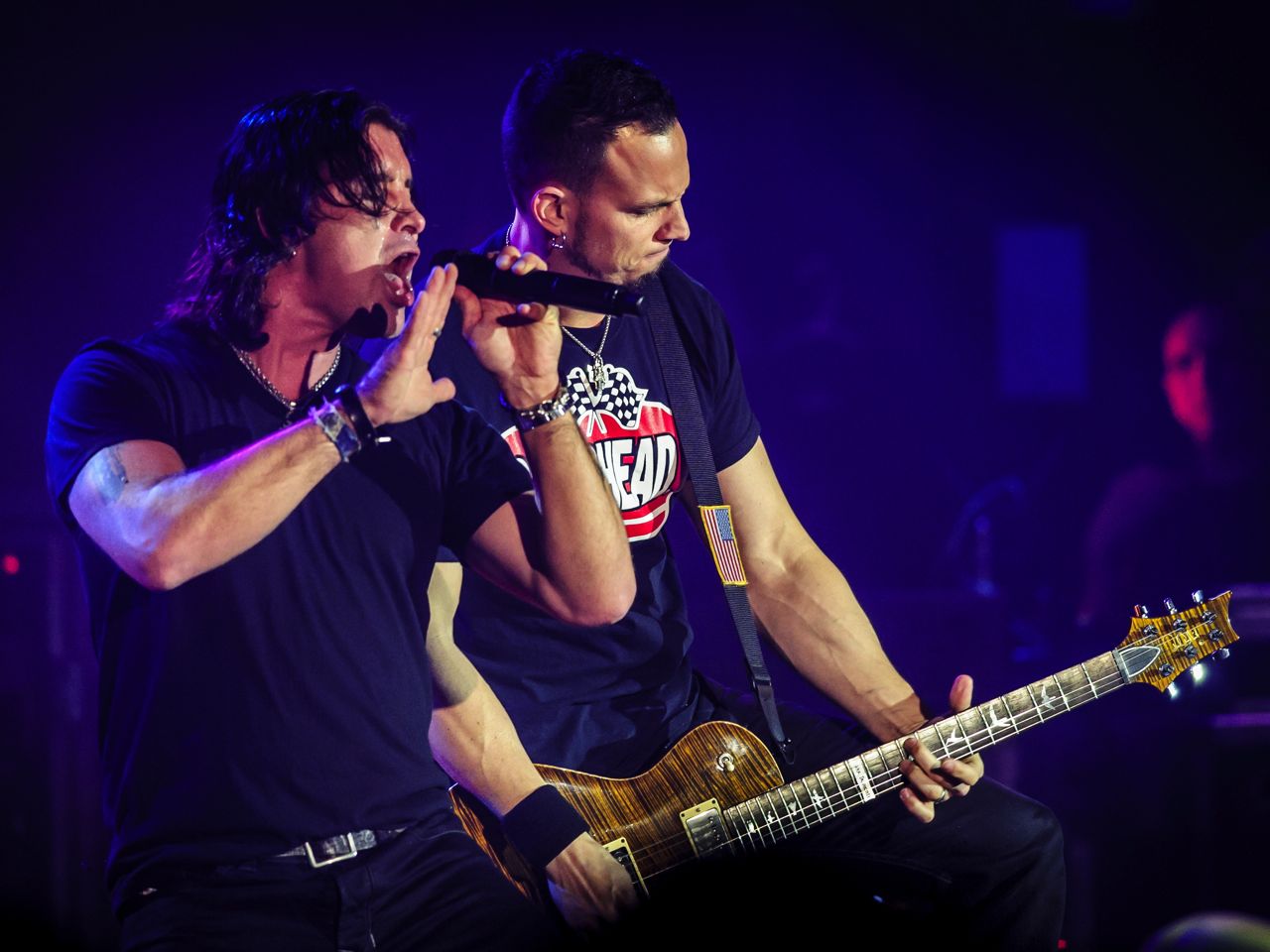
Creed
Creed’s My Own Prison and Human Clay were two of the most successful rock albums of the nineties, did you enjoy revisiting all those songs on that 2012 tour?
“I did, those songs are all benchmarks of periods in my life, and what’s cool too is they have an even deeper meaning to me now with perspective. They still feel good to play. I’ve got a feeling I’ll be playing those for a long, long time.”
The Sinner’s Creed book really adds insight into what your mindset was when you wrote some of those songs…
“I’ve heard that from quite a few people who’ve read the book. Knowing what was going on in my mind because of my childhood. Behind the scenes you could see the inspiration and where the formulation of a lot of it came from.”
Looking back on the shows you did together, is there a standout moment above all the highlights?
“There was something special that happened onstage, all at once to everyone in Creed at a show in Houston, Texas. I forget which year, probably 2000, and it was in front of 45,000 people that were there just to see Creed. There was a moment when it hit us that every single person, so far as we could see, was singing every word to every song. And I think that realisation, that moment of clarity, hit all of us at the same time.
We kind of looked at each other, and I’ll never forget that moment. That feeling when the enormity of what was going on hit us right in the middle of a show. We embraced it but I’ll never forget that moment, it’s priceless in my mind.”
Creed were writing a follow-up to the Full Circle album back in 2012 but work didn't continue, is the door closed on the band for the time being?
“No, I think it’s important for Creed that it has to feel right and there has to be a want-to. Creed afforded all of us the ability, the opportunity and the freedom to really explore everything that fulfills us artistically. And I think the guys are happy and enjoying their success in Alter Bridge. And I’m really happy and fulfilled in doing what I’m doing. I think that’s good but when it feels right, you can never say never.”
Were you excited about those songs written in the initial sessions for the next album?
“I really was, and the whole band was. We were back to doing things like we did after the My Own Prison record. We were so excited we were jamming them during soundcheck while we were on tour. So there’s good stuff there but right now all of us want the stuff we’re working on separately to be given a chance and be accepted in its own right.”
And it's worked out well in the sense that you were able to forge ahead with Proof Of Life…
“I’m grateful for it, because I needed this for me, as a human being and an artist. Things happen for a reason.”
What’s the next year looking like for you now?
“I’m out promoting this record and trying to reconnect with all the Creed fans, and any news fans… music fans in general. Do what I do, and go all over the world doing it. We’ve talked about maybe releasing some tracks that didn’t make Proof Of Life but in hindsight I wished they did. So adding bonus tracks. And touring; touring, touring and touring.”

Rob is the Reviews Editor for GuitarWorld.com and MusicRadar guitars, so spends most of his waking hours (and beyond) thinking about and trying the latest gear while making sure our reviews team is giving you thorough and honest tests of it. He's worked for guitar mags and sites as a writer and editor for nearly 20 years but still winces at the thought of restringing anything with a Floyd Rose.









